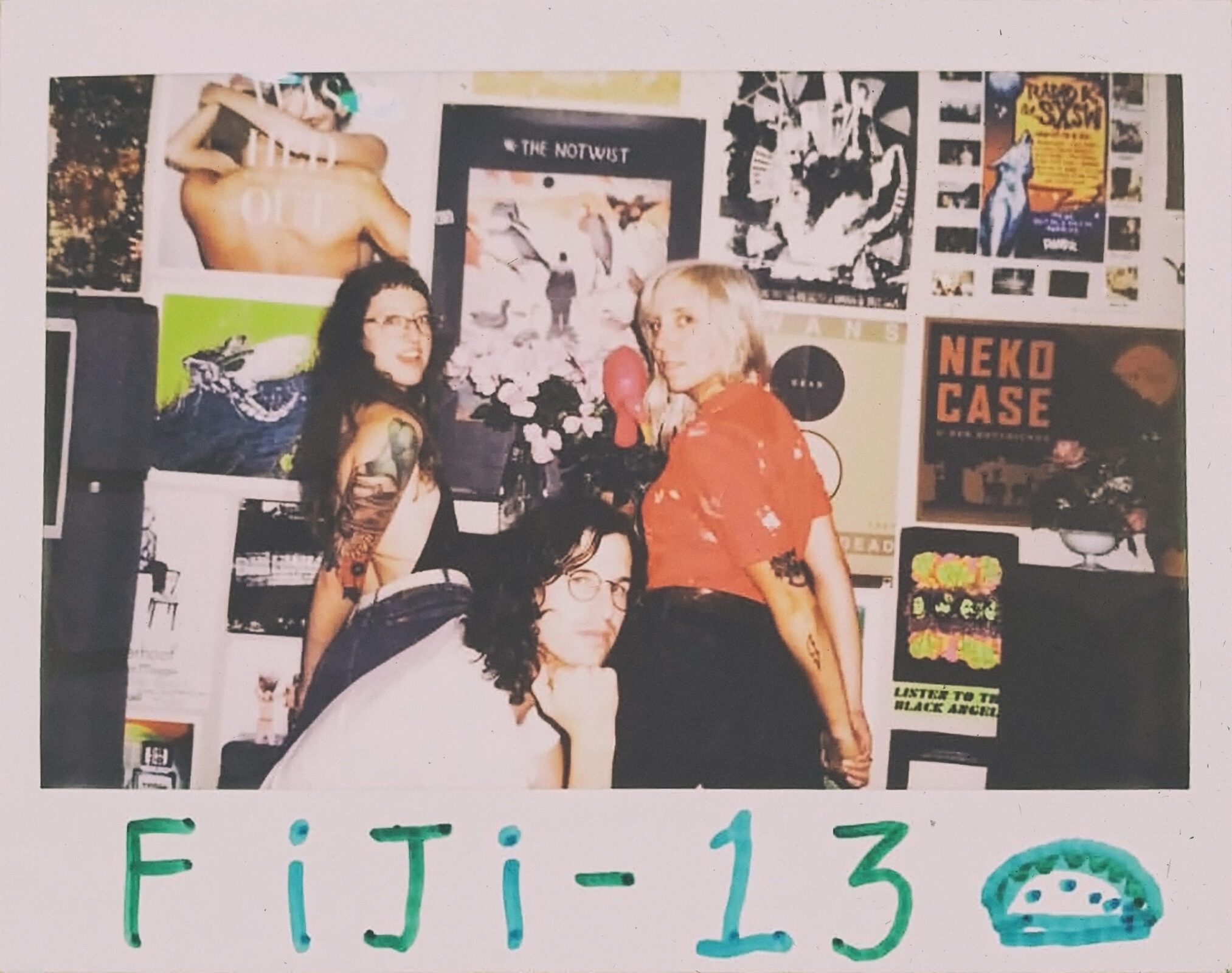

If you were to come across IAN SWEET – a.k.a. Jillian Medford – on the internet, what you would see is a free-spirited, hilarious and talented artist who has recently taken up the hobby of hat-making. This, however, is not the Jillian that we meet on IAN SWEET’s sophomore record, Show Me How You Disappear, released March 5 via Polyvinyl. The record is a sullen but triumphant archive of Medford’s road to recovery after severing ties with an abusive partner and experiencing an all-consuming mental health crisis in 2020.
We hear it all the time, from every angle – 2020 fucking sucked. And the response to that is a resounding and unanimous – yes it did. But outside of a global pandemic, nightmarish election season and countless other tragedies this infamous year contributed to the history of humankind, try adding a massive heartbreak to the list. As you can imagine, this catastrophic cocktail would be too much for anyone to handle, but Medford did – with devastating doses of self-awareness and honesty. In Show Me How You Disappear, Medford creates a meandering but genuine road map to finding herself again, all while letting go of the person that led her off track.
Medford sets the scene with “My Favorite Cloud,” introducing us to the mindset she was in while writing the record – scattered, dark and disoriented and relying on an external force to keep her afloat. It’s unclear what Medford is referencing when she sings, “Oh at the end of the earth/There’s an endless supply of it/I don’t fuck with this stuff/I don’t even care/What it does for me/How it keeps me living/In suspended bliss without even asking.” But, that’s probably the point. We all have things that keep us going, whether it’s a Xanax prescription or those couple extra glasses of wine after dinner – the habitual coping mechanisms that we find comfort in can shape up to be our enemies when we’re at our lowest, not wanting to exist at all. Medford’s suspended vocals are surrounded by lush, chaotic guitar strums and distant bells and extra-terrestrial synth waves, perhaps suggesting her foot already in the next world.
But as the album progresses, the fog lifts and we follow Medford on her journey back to herself. In “Get Better,” Medford uses a mantra to will herself into healing, and try to stop falling back into thought patterns that deepen her heartbreak: “I wanna get better, better, better/But in my mind I’m still laying in your bed/I wanna get better, better, better/But I just get you well instead.” We’ve all been there, promising ourselves that today we’ll block our ex on social media, or stop picking up the phone. But if there’s one thing that’s ever-true about heartbreak, it’s that it’s not linear. It’s a lumpy ass sidewalk with cracks and broken glass and wet cement. But Medford is self-aware enough on “Get Better” to know that the only one she’s helping is the one who hurt her when she lets her mind or heart wander back to them.
The record closes with “I See Everything,” a cleansing ode to mindfulness and recovery. “I know it now I know/What they’re talking about/I’m not afraid anymore/I see it now I see/So much more than before/I see everything.” It’s as if the smoke from the dumpster fire of a relationship has cleared and Medford can finally breathe again – finally take in her surroundings and enjoy them instead of being weighed down by trauma. She leaves any heartbroken or lost listener with the hope that they’ll recover, and a few tools to use along the way. We spoke with Medford about writing the record and the inpatient therapy program that prompted it. Read the interview and listen to Show Me How You Disappear below.
AF: There’s an emphasis on healing in this record — did you take a break from writing music before this record? If yes, what brought you to writing that first song? Did you enter the writing process with a different mentality for this record your previous releases, ?
JM: I don’t think I’ve ever fully taken a break from writing music – it’s always happening in some capacity but I wasn’t pushing myself to make a full record or compilation of songs at the time. The first song I wrote for this record was “Dumb Driver” and soon after that was “Power.” The writing process for this record was completely different than before because I started writing lyrics first – I would journal for 30 minutes every morning in my outpatient therapy program.
AF: I read that mantra is a big part of your life/songwriting. When were you first introduced to mantra and is there a certain one that you constantly come back to?
JM: I’ve never been big on meditation, mantras or mindfulness until I checked myself into an intensive therapy program where I was taught something called “tapping” which is a big mantra-based practice where you simultaneously tap the pressure points on your body as you repeat a mantra of your liking or an intention for the day. This was eye-opening for me and allowed me to find pieces of myself I had not yet been introduced to.
AF: While the record definitely feels self-reflective, I do hear loss and heartbreak in there as well. Was that part of your experience when you were writing?
JM: Big time heartbreak, heartache and healing.
AF: You handpicked different producers for each song on the album. What was that process like? Do you write an entire song then recruit folks to add the missing pieces or is it a “from the start” situation?
JM: I don’t think I’ve ever done a song from scratch with a producer before. I always bring an outline (guitar, lyrics, drum demo, synth ideas) to the table. It is so fun to see a song transform though through the collaborative process.
AF: If I’m reading the timeline right, a lot of these songs were written during the pandemic in LA – what was that like? Do you think it influenced your sound at all?
JM: Definitely! The pandemic (in a strange way) has allowed me to have space to breathe and make music that is truly representative of what I had been through. At the beginning of the pandemic I was writing like a madman because I had just finished my intensive therapy (that I was in for 2 months) and I was seeing things in a whole new light. I had the time to try to utilize the tools and practices I learned while in the program and see if I could help myself through another dark period.
AF: What’s the story behind the title track?
JM: That track is deep-rooted in an abusive relationship and the vicious cycle of trauma that follows. “Show Me How You Disappear” came from a conversation I had in my head with my abuser – I wanted them gone, I was tired of trying to get rid of the memories myself, it was exhausting… and I wanted them to do the leg work, I wanted them to be the one to remove themselves and their actions from my memory. This song is a plea, almost like a cry out to my abuser to help me in a sense. The least they can do after putting me through such agony would be disappearing from my life so that I could return to the happy, bright, loving person I once was.
IAN SWEET plays Show Me How You Disappear live from Los Angeles’ Lodge Room for an Audiotree STAGED livestream performance on March 26th at 7pm PT/9pm CT. Tickets are $13 adv/$15 DOS and are available here.
Follow IAN SWEET on Facebook and Instagram for ongoing updates.




